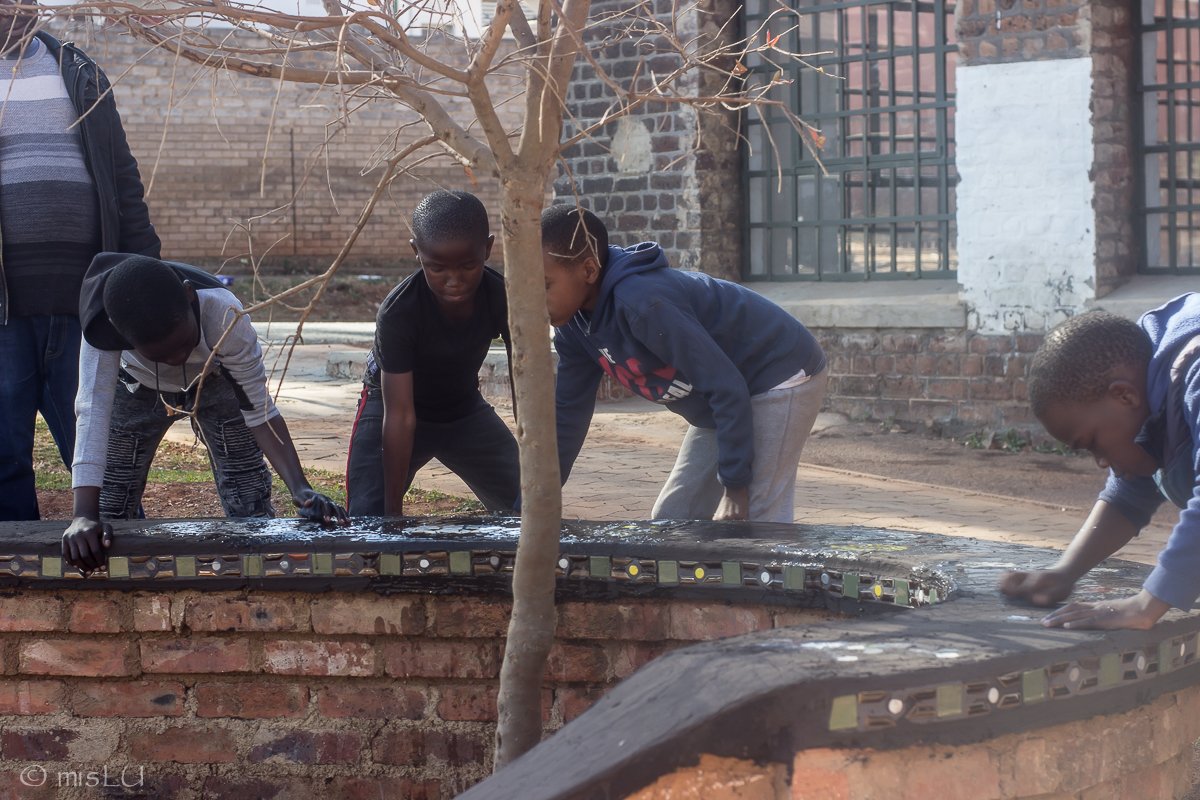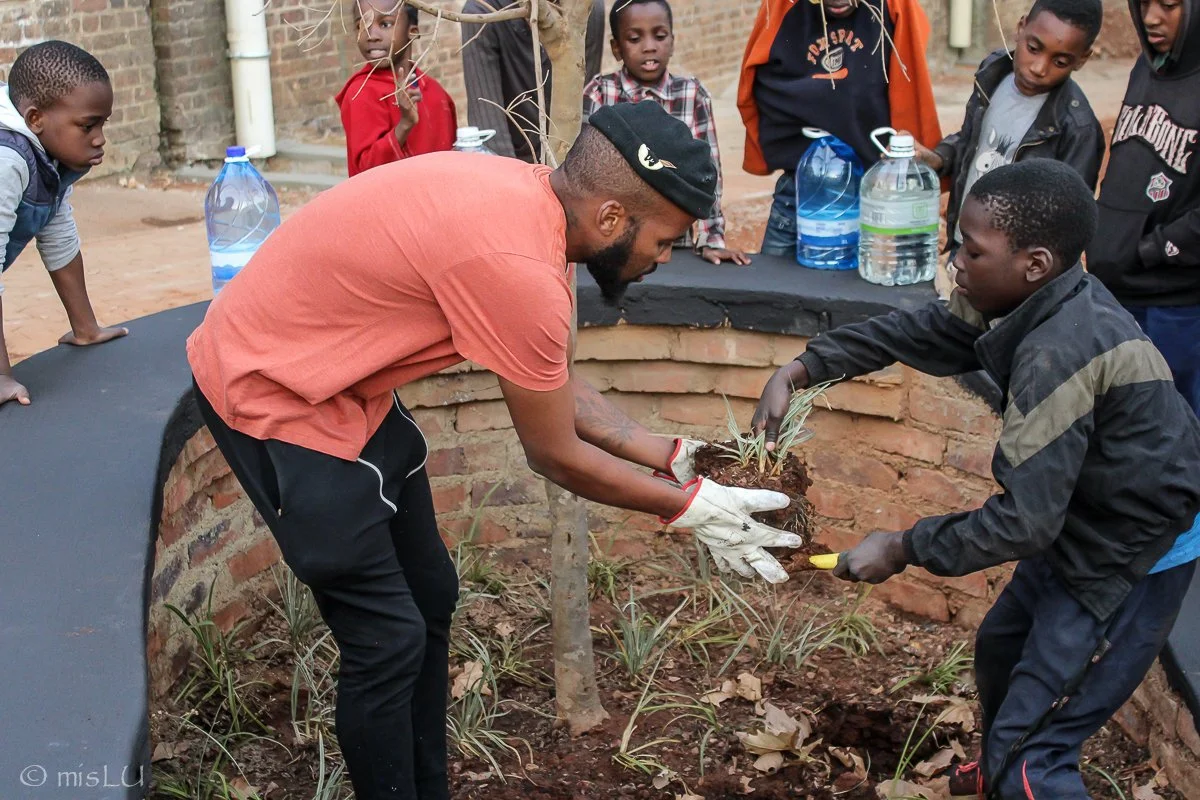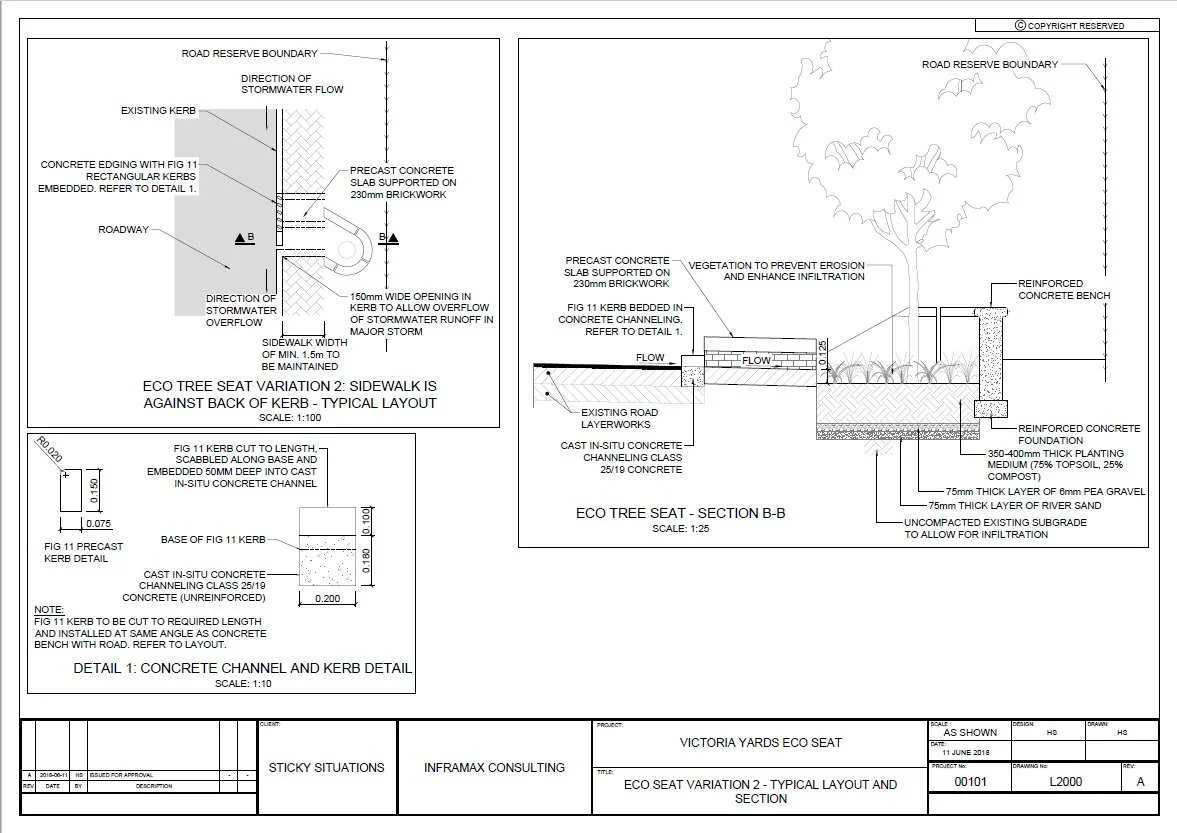Sustainable Urban Drainage Systems (SuDS)

EcoTree Seat, Viljoen Street
‘Approaches to managing surface water that take account of water quantity (flooding), water quality (pollution) biodiversity (wildlife and plants) and amenity are collectively referred to as Sustainable Drainage Systems (SuDS). SuDS are drainage systems that are considered to be environmentally beneficial, causing minimal or no long-term detrimental damage. They are often regarded as a sequence of management practices, control structures and strategies designed to efficiently and sustainably drain surface water, while minimising pollution and managing the impact on water quality of local water bodies.
SuDS are often designed to mimic nature and typically manage rainfall close to where it falls. SuDS can also be designed to transport (convey) surface water, slow runoff down (attenuate) before it enters watercourses. They provide areas to store water in natural contours and can be used to allow water to soak (infiltrate) into the ground or evaporated from surface water and lost or transpired from vegetation (known as evapotranspiration).’ (Extract from Susdrain.org, 2021)
Problem Statement
The first 1km of the Jukskei River headwaters flow in a concrete canal. The canal is undersized for existing rainfall events, and storm water routinely overcomes barriers of the culvert, leading to a frequent flooding of roads and housing with water and sediment.
Downstream, the river is highly polluted, indicating that the existing system does not improve water quality of surface flows prior to discharge but rather mobilises and transports pollutants to the river. Stormwater runoff is collected and discharged rapidly, as a waste product of the sub-catchment, as opposed to being conserved as a resource for future needs.
Eco Tree Seat by Water for the Future
As a first step towards finding solutions to the above challenges, Water for the Future worked together with various municipal departments, consulting engineers and the University of Johannesburg’s PEETS Innovation Station to pilot test an innovative SUDS solution near the Jukskei River daylight point.
This work culminated in a co-designed ‘Eco tree seat’ bioswale built in May 2019 on the corner of Viljoen and Victoria Streets in Lorentzville. It was built by a local Johannesburg Roads Agency (JRA) service provider and helps to prevent flooding. Plans are afoot to install more eco tree seats throughout Lorentzville and Judith’s Paarl to expand the pilot site and increase its water attenuation capacity.
The Eco Tree Seat is a stormwater intervention based on Water Sensitive Urban Design and SUDS principles. It functions as a bioswale and is retrofitted into the sidewalk in the sub-catchment area. It diverts stormwater flow from the roadside gutters into the bowl of the Eco Tree Seat from where it either infiltrates into the sub-catchment, recharging the ground water table, is connected back into the stormwater sewers, or irrigates the soil of downslope sidewalk vegetable gardens, releasing water of improved quality and decreased flow rate.
As a sustainable intervention, the Eco Tree Seat is a multi-functional infrastructure. It serves as a seat for the public when not inundated, thus engaging the community. It brings aesthetic value to the street and introduces biodiversity to the urban setting as it is planted with vegetation. It also repurposes the water for further reuse potential within the sub-catchment prior to discharge. It cuts into existing curb, linking the formal urban infrastructure with the informality Johannesburg citizens embrace.
Stormwater Management Plans and Reports
-

Stormwater Management Plan for Victoria Yards, Erf 196 and 197, Lorentzville
By Inframax Consulting, 2018
-

Research on the use of SuDS in Gauteng Province
Large Stakeholder Workshop 2 (Final workshop) Report on the workshop 2019
-

Basic Assessment Report for the Upgrade of the Bezuidenhout Valley Clinic and Associated Infrastructure in Johannesburg, Gauteng Province
By Royal Haskoning DHV 2018 - we need to get permission to publish this!
-
Research on the Use of Sustainable Urban Drainage Systems in Gauteng
by Stuart Dunsmore for The Department of Agriculture and Rural Development (GDARD) 2019

Take Action
If you would like to get involved, there are many ways that you can help.




